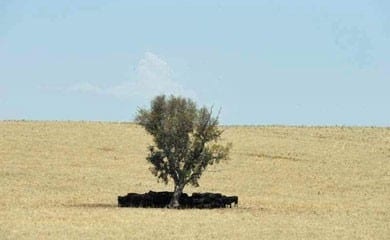
Young people know the cost of climate change – they will be paying it their entire lives
My generation needs no convincing of the need to take urgent action on climate change. We have studied the basic science, and we have understood the need for technological improvements to enable our economies to transition away from fossil fuels.
We have joined the climate marches; taken action in our schools and universities; met our MPs. We have even sued our governments when they fail to take effective action. On the whole, our frustration and (yes) anger has grown at the lack of significant commitment to change. After all, the current crop of politicians will be long dead but we will still be around, and so will our children, when the major effects of climate change are felt.
Into this environment of pessimism, the recent Lancet Commission’s report on climate and health provides a heartening alternative. Instead of only focussing on the gloomy predictions of environmental and human catastrophe, the report describes how action on climate change can lead to better health for us all. This message of hope resonates particularly with younger people.
Give us real options – give us some projects to work on – give us hope for a safe climate future. Many young people will be encouraged by the Commission’s conclusion that “[a]chieving a decarbonised global economy and securing the public health benefits it offers is no longer primarily a technical or economic question – it is now a political one.” This means that we can now demand that our political leaders end their excuses and delaying tactics, and commit to meaningful action on reducing the greenhouse gas emissions that endanger our world now and in the not-too-distant future.
In sharing my views as an Australian medical student, I know that I write from a position of privilege. I will be spared the worst impacts of climate change, as I live in a wealthy community which will be able to respond to the challenges that warming poses – at least in the short to medium term. Even so, the challenges of climate change to my community are clear.
The rising incidence of heatwaves and the increasing threat of bushfires in southern Australia is an issue that has affected me personally. As a volunteer with the Australian Red Cross Telecross REDi heatwave service, I have spoken to dozens of vulnerable South Australians who just can’t cope during days of extreme heat.
The toll from heat waves can be catastrophic. That there were three times as many deaths from heat (374 deaths) compared to bushfires (173 deaths) during the terrible 2009 Black Saturday fires in Victoria drives home the devastation that heatwaves can have. More recently the Karachi heatwave killed more than 1000 people and crippled the local health system. Days of extreme heat are only going to get worse as average global temperatures rise.
Our communities need to respond to these big challenges. The Lancet Commission shows the way to the health benefits of climate change reduction and mitigation. Alongside these, we also need to implement adaptation strategies to help communities deal with the changes that are already happening. As a doctor in training I have seen first-hand the need to create integrated heatwave early warning systems for southern Australia. These will help to strengthen our health systems as a whole, by bringing together agencies and organisations, and streamlining their approaches. We will all win from this strategy, as it will ensure that our community is better able to respond to extreme heat, and will lead to improved care for our vulnerable populations.
The benefits of acting on climate change are even more significant for young people, especially as we make up a majority of the population in many developing countries, where food insecurity and conflict may worsen as a result of higher temperatures. Actions that are taken now to strengthen food supplies and promote democracy and good governance will help young people in many countries to reach their full potential. We owe it to all those millions of young people to work with all our energy towards a safe climate and more equal world.
Sooner or later we will need to take action on global warming. The question is how long we will wait before we are forced to act. For the sake of my generation and those yet to come, I implore our political leaders to lead us out of our complacency and inaction, towards a better, healthier, low carbon future.

